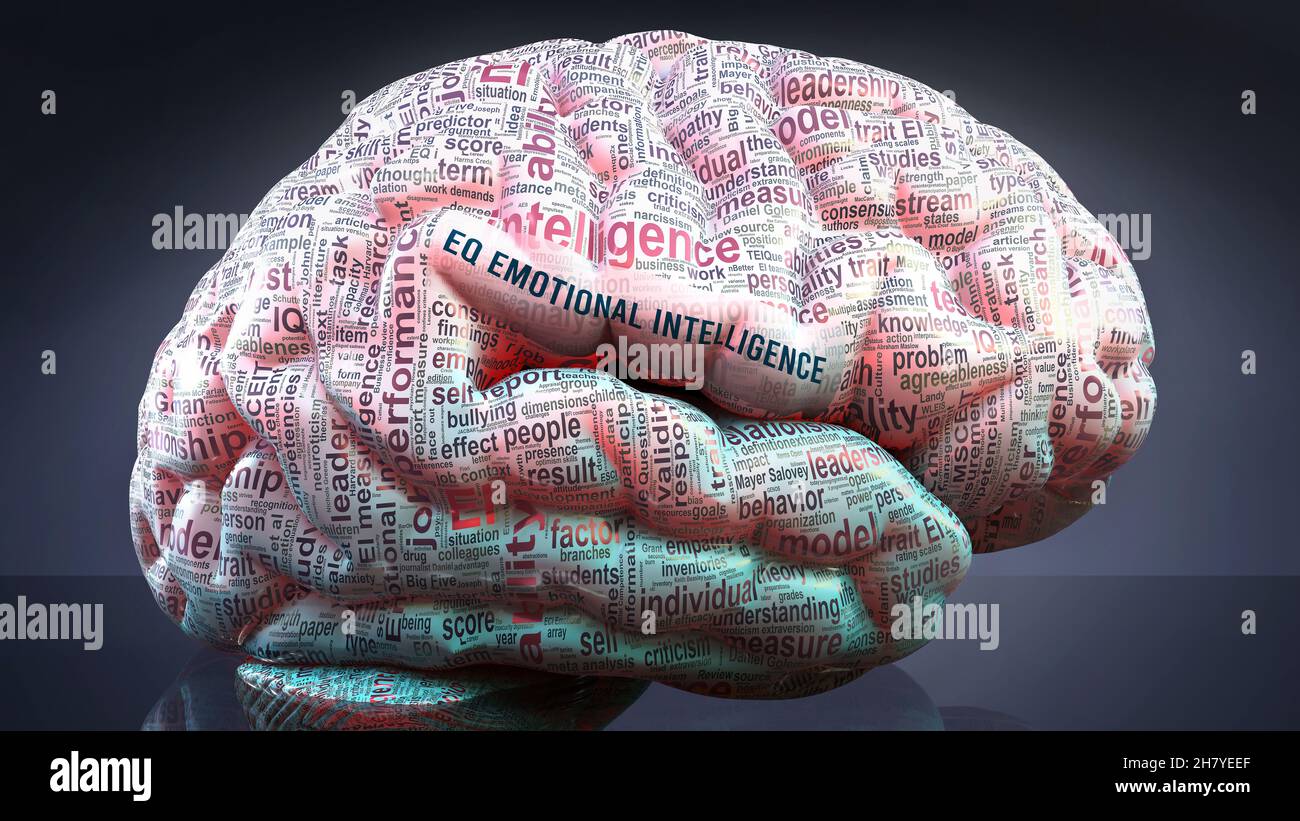Emotional intelligence (EI) is a crucial component of personal development and mental health. Defined as the ability to recognize, understand, manage, and reason with emotions, EI affects every aspect of our lives—from how we handle stress to how we build and maintain relationships. Daniel Goleman’s model of emotional intelligence identifies five core components: self-awareness, self-regulation, motivation, empathy, and social skills. These elements contribute significantly to our mental well-being and ability to thrive in various settings, including work, school, and personal life.
In this article, we explore the impact of emotional intelligence on mental health and well-being, provide strategies for cultivating EI, and highlight its importance in creating healthier, more resilient individuals and communities.
Understanding Emotional Intelligence (EI)
Key Components of Emotional Intelligence
- Self-awareness: The ability to recognize your own emotions, strengths, and weaknesses. It’s the foundation of EI, helping individuals understand how their emotions affect their actions and decisions.
- Self-regulation: Managing and controlling emotions, thoughts, and behaviors effectively. It allows individuals to stay calm under pressure and handle stressful situations with clarity.
- Social awareness: Understanding the emotions of others and empathizing with their perspectives. This skill fosters better communication and stronger relationships.
- Relationship management: The ability to navigate social situations, communicate effectively, and build strong, positive relationships.
| Component | Definition | Benefits |
|---|---|---|
| Self-awareness | Recognizing one’s emotions and motivations | Improves decision-making |
| Self-regulation | Managing emotions and behaviors | Enhances emotional stability |
| Social awareness | Understanding others’ emotions | Fosters empathy and compassion |
| Relationship management | Building positive and effective social interactions | Strengthens personal connections |
The Importance of Emotional Intelligence in Mental Health
Emotional intelligence is directly linked to mental health and overall well-being. By fostering skills like emotional regulation, empathy, and resilience, EI helps individuals maintain mental stability and cope with challenges more effectively.
1. Coping Mechanisms and Resilience
Individuals with high emotional intelligence are better equipped to manage stress, adversity, and unexpected life changes. EI promotes a growth mindset and adaptability, helping people overcome challenges with confidence.
2. Emotional Regulation
Effective emotional regulation can prevent mental health issues such as anxiety and depression. By recognizing and managing negative emotions, individuals can avoid emotional overload and maintain mental clarity.
3. Interpersonal Relationships
Strong EI enhances social skills, leading to healthier relationships. It enables individuals to communicate more effectively, resolve conflicts peacefully, and foster supportive social networks.
| Aspect of Mental Health | Role of Emotional Intelligence | Outcome |
|---|---|---|
| Stress Management | High EI promotes adaptive coping strategies | Reduces anxiety and emotional strain |
| Emotional Stability | Self-regulation prevents emotional disorders | Enhances mental well-being |
| Social Connections | EI improves communication and empathy | Strengthens relationships |
Cultivating Emotional Intelligence for Better Mental Health
Building emotional intelligence is a lifelong process, but the benefits are significant. Here are some effective strategies to enhance your EI:
1. Strategies for Enhancing Self-Awareness
- Mindfulness practices: Techniques like meditation and body scans can help increase awareness of your emotions and triggers.
- Journaling: Reflecting on your thoughts and feelings through writing can promote self-discovery.
- Seeking feedback: Asking trusted friends or colleagues for feedback can provide valuable insights into your behavior and emotional responses.
2. Developing Self-Regulation Skills
- Stress management techniques: Practices such as deep breathing and progressive muscle relaxation help manage immediate emotional reactions.
- Cognitive-behavioral therapy (CBT): This therapeutic approach can help you identify and change negative thought patterns.
- Emotion regulation strategies: Techniques like reappraisal (reframing situations) and distraction can help prevent emotional overload.
| Strategy | Description | Benefit |
|---|---|---|
| Mindfulness practices | Meditation and awareness exercises | Increases self-awareness |
| Stress management techniques | Breathing exercises and muscle relaxation | Promotes calmness |
| CBT | Therapy to change negative thought patterns | Enhances emotional control |
3. Improving Social Awareness and Relationship Management
- Empathy exercises: Practicing perspective-taking and active listening enhances your ability to understand others’ emotions.
- Effective communication: Workshops focusing on assertiveness and conflict resolution improve your ability to navigate social situations.
- Interpersonal skill-building: Activities like role-playing and group projects can strengthen your relationship management abilities.
FAQs About Emotional Intelligence and Mental Health
Q: Can emotional intelligence be learned?
Yes, emotional intelligence can be developed and improved over time through practice and training. Techniques like mindfulness, journaling, and empathy exercises can help build EI.
Q: How does emotional intelligence benefit mental health?
EI helps individuals manage stress, regulate emotions, and build healthier relationships, which in turn promotes better mental health and emotional well-being.
Q: Is emotional intelligence more important than IQ?
While both are important, emotional intelligence is often more critical for success in personal relationships and professional settings, as it affects how well we understand and interact with others.
Conclusion
Emotional intelligence is a powerful tool that can improve mental health, well-being, and life satisfaction. By recognizing and managing emotions, fostering empathy, and developing strong interpersonal skills, individuals can build resilience, reduce stress, and create more meaningful relationships. Whether in personal life or professional settings, cultivating emotional intelligence is essential for leading a balanced, fulfilling life.
